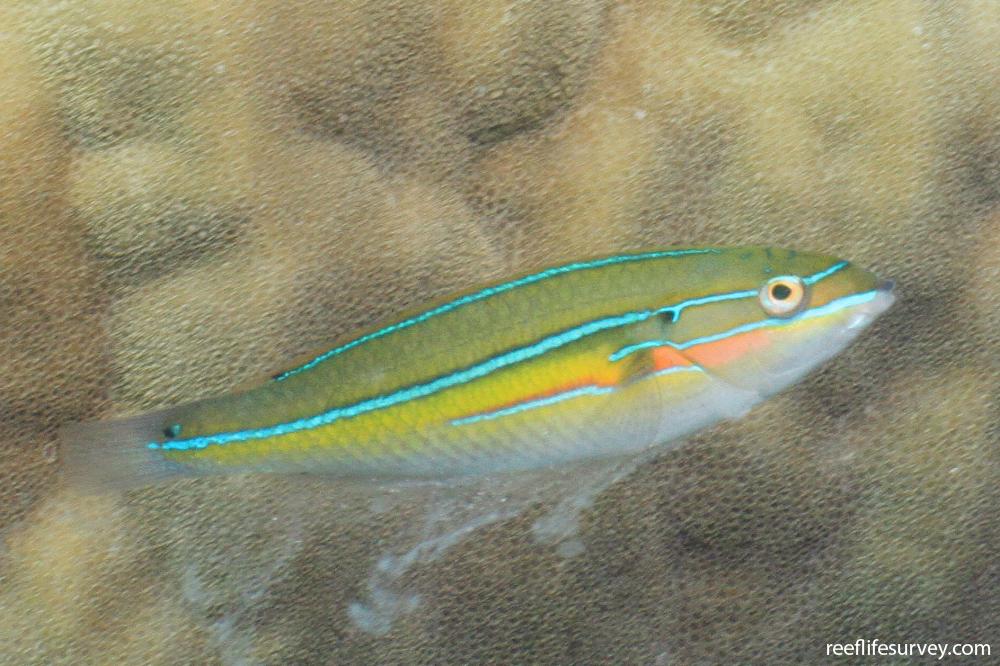Stethojulis strigiventer
Three-ribbon wrasse | Lined Rainbowfish | Silver-streaked Rainbowfish | Silver-streaked Wrasse | Silverbelly Wrasse | Silverstreak Wrasse | Stripebelly Wrasse | Three Ribbon RainbowfishSimilar Species
Same Genus
Distribution
Tropical Indo-Pacific
Description
Blue stripe from eye continues length of body in male, but lower stripe only on front half, unlike S. trilineata. Females with distinct light stripe below eye and striped underside. Juveniles with small ocelli on rear dorsal fin and tail base, like S. bandanensis, but the latter lacks stripes on underside.
Information
Max Size: 15 cm
Sea Temperature Range: 18.5-30.9°C
Depth: 2-15 m
Habitat Generalization Index: 16.03
Also referred to as the SGI (Species Generalisation Index), this describes the habitat niche breadth of the species. Species with values less than 15 are found in a relatively narrow range of reef habitat types (specialists), while those over 25 may be found on most hard substrates within their range (generalists). Learn more here.
Conservation and Rarity
IUCN Status: Least Concern
Occurrence: Frequent (13.4% of sites)
Occurrence describes how often the species is found on surveys within its distribution. It is calculated as the % of reef sites surveyed by RLS divers across all the ecoregions in which the species has been observed
Abundance: Several (8 per transect)
Abundance is calculated as the average number of individuals recorded per RLS transect, where present.
Edit by: RD Stuart-Smith, GJ Edgar, AJ Green, IV Shaw. 2015. Tropical Marine Fishes of Australia. Reed New Holland



















